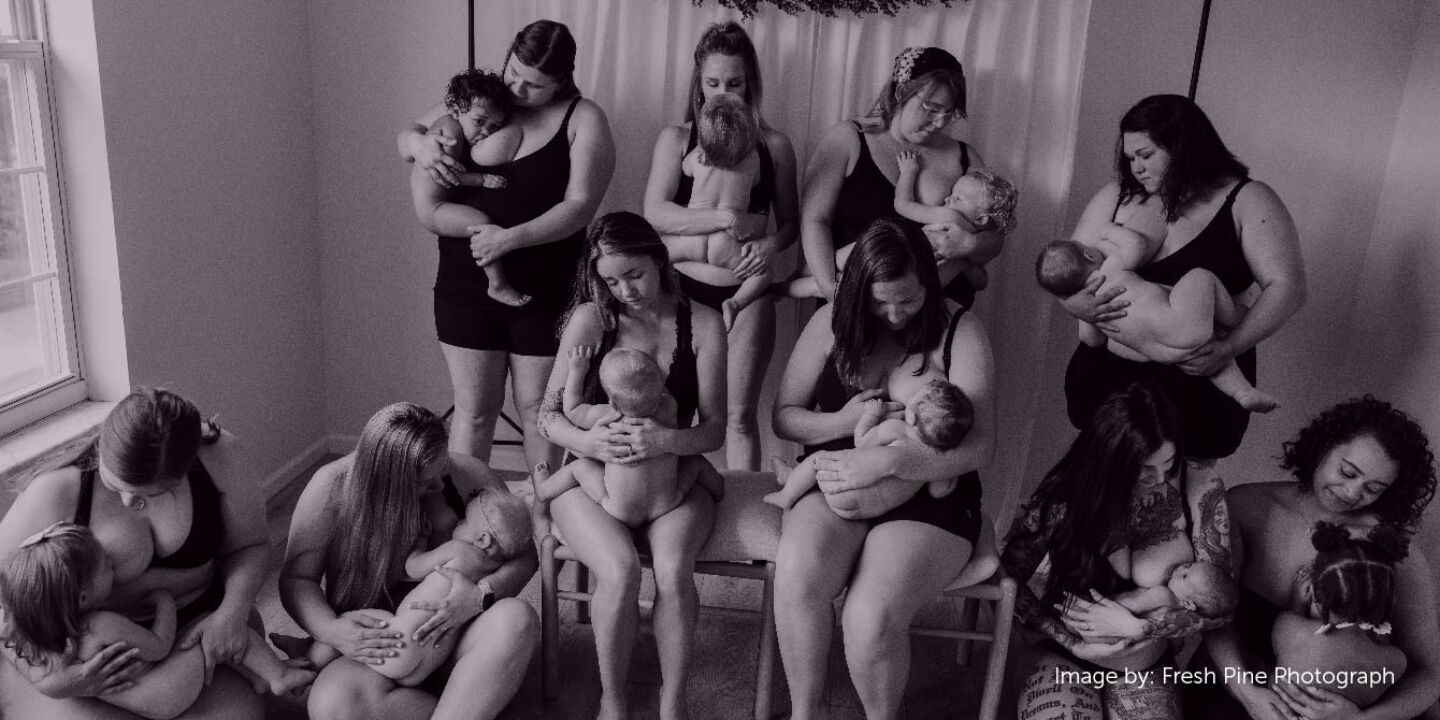It’s no secret that postpartum is a challenging time for many mothers, emphasizing the adage that it takes a village to raise a mother. To delve deeper into the challenges and essential support systems for women in the early stages of child-rearing, Elvie and Motherly partnered to survey over one thousand women either in the postpartum period or currently pregnant. The results from The Motherload: The Weight of Limited Postpartum Support survey revealed three key challenges faced by women during pregnancy and postpartum—and identified four core pillars that are needed to holistically support expectant and new mothers.
“With this new research, we’re demonstrating something those mothers already know: postpartum care in the US is simply not good enough,” says Tania Boler, Founder & President of Elvie. “While they rely on and are comfortable with technology, whether it be a pump, ovulation tracker or pregnancy app, there’s an increase in frustration surrounding unexpected challenges and unknowns when it comes to their maternal health.”
“Women are looking to feel as sure in their doctors as they are in their trusted technology. But today’s current maternal health issues—from lack of education and paid leave to physical and mental challenges—are having a tremendous impact on how women navigate both the pre- and postnatal landscape. Better medical, social and governmental aid are crucial to empower the women raising the next generation.”
Tania Boler, Founder & President of Elvie
The survey’s compelling findings shed light on significant opportunities to enhance support systems available to mothers in the postpartum phase and beyond.
A trio of challenges
New mothers encounter myriad challenges, with three issues rising prominently above the others: breastfeeding, pelvic floor concerns and mental health challenges. These aspects represent critical dimensions of the postpartum experience, warranting focused attention and comprehensive support for the well-being of both mothers and infants.
Breastfeeding struggles
While many expectant mothers anticipate breastfeeding, the survey revealed that breastfeeding emerges as the single most unexpected challenge new mothers encounter post-birth.
In fact, 84% of moms face some level of breastfeeding complications.
Furthermore, nearly as many mothers stop breastfeeding due to its challenges as those who stop for natural reasons. About 42% stopped due to factors such as returning to work constraints, insufficient support, challenges balancing breastfeeding with other responsibilities, sleep issues, mental health concerns or discomfort and pain. Addressing these challenges is vital for the well-being of both mothers and infants.
Pelvic floor health
Another unexpected but common challenge faced by postpartum mothers involves pelvic floor issues.
While 79% of mothers surveyed said they experienced pelvic floor challenges, only 31% expressed satisfaction with the treatments currently available.
This significant gap between the high occurrence of pelvic floor problems and the effectiveness of treatments (including regular pelvic floor training) underscores the urgent need for improved postpartum care.
Mental health complications
Amid fluctuating hormones and actual changes in brain chemistry, postpartum mental health complications emerge as a tangible and significant reality for many women. These challenges are further intensified by concurrent physical health changes.
A striking 77% of mothers reported experiencing at least mild mental health complications.
Shockingly, only 28% expressed having good mental health during the postpartum period, and a mere 31% received professional mental health support. The implications of these findings are profound, emphasizing the critical importance of prioritizing the mental well-being of mothers.
Four core pillars of support

The research identified the pivotal role of four societal pillars that women should ideally be able to rely on during their transformative journey into motherhood: medical professionals, employers and government, family and technology.
Where mothers turn
Astonishingly (or not), the results revealed that mothers lean on two significant pillars for support: family and technology. A whopping 94% of moms feel supported by their partners during pregnancy, and 90% during the postpartum experience. Families remain the bedrock of support during and after pregnancy, providing essential support for mothers navigating the complexities of motherhood.
What’s more, 97% of mothers rely on technology to aid their postpartum recovery. From electric breast pumps and baby monitors to smartphone apps, technology emerges as a versatile tool that is often valued as highly as healthcare professionals.
The support gap
In contrast, the Motherload survey unveiled a concerning gap in support from two crucial pillars: medical professionals, employers and government. Following the prenatal phase where women would typically see their prenatal providers on a regular basis, only 23% of mothers felt very supported by their healthcare providers during the postpartum phase. This highlights a significant area for improvement in the medical support system for mothers.
Furthermore, the political and policy landscape, along with employer support, often leaves mothers wanting. The findings indicate a pressing need for enhanced workplace policies and broader government initiatives to better support mothers during and after pregnancy.
Enhancing support for holistic motherhood
In navigating the complexities of motherhood, Elvie and Motherly’s The Motherload: The weight of limited postpartum support survey emphasizes the need for a holistic support system that encompasses medical professionals, family, technology and robust workplace and governmental policies. Understanding the challenges and reinforcing support in these key areas will contribute to a more positive and empowering motherhood experience for women. As we move forward, addressing the support gap and fostering comprehensive care will undoubtedly pave the way for a healthier and more fulfilling motherhood journey.
Click here to view the report – The Motherload: The Weight of Limited Postpartum Support.

